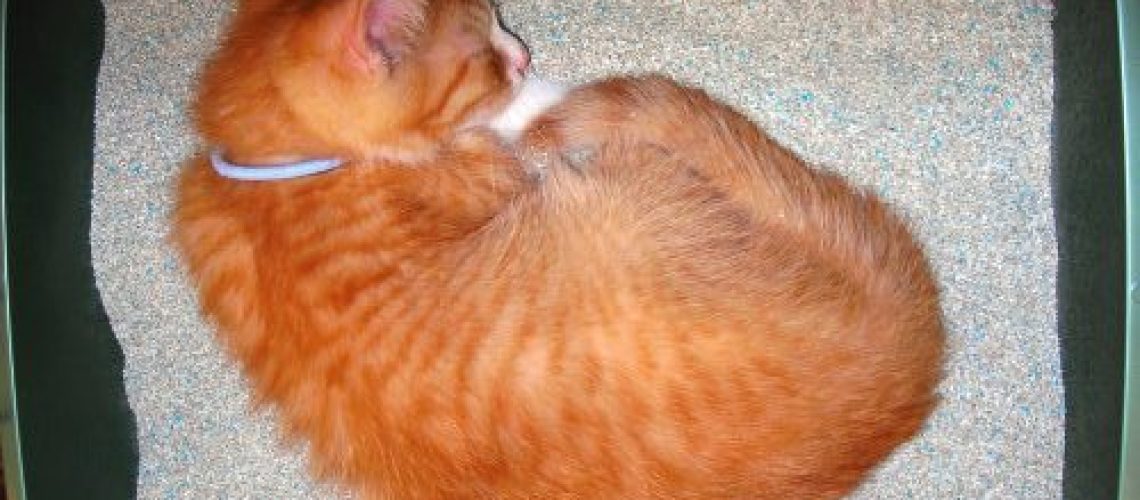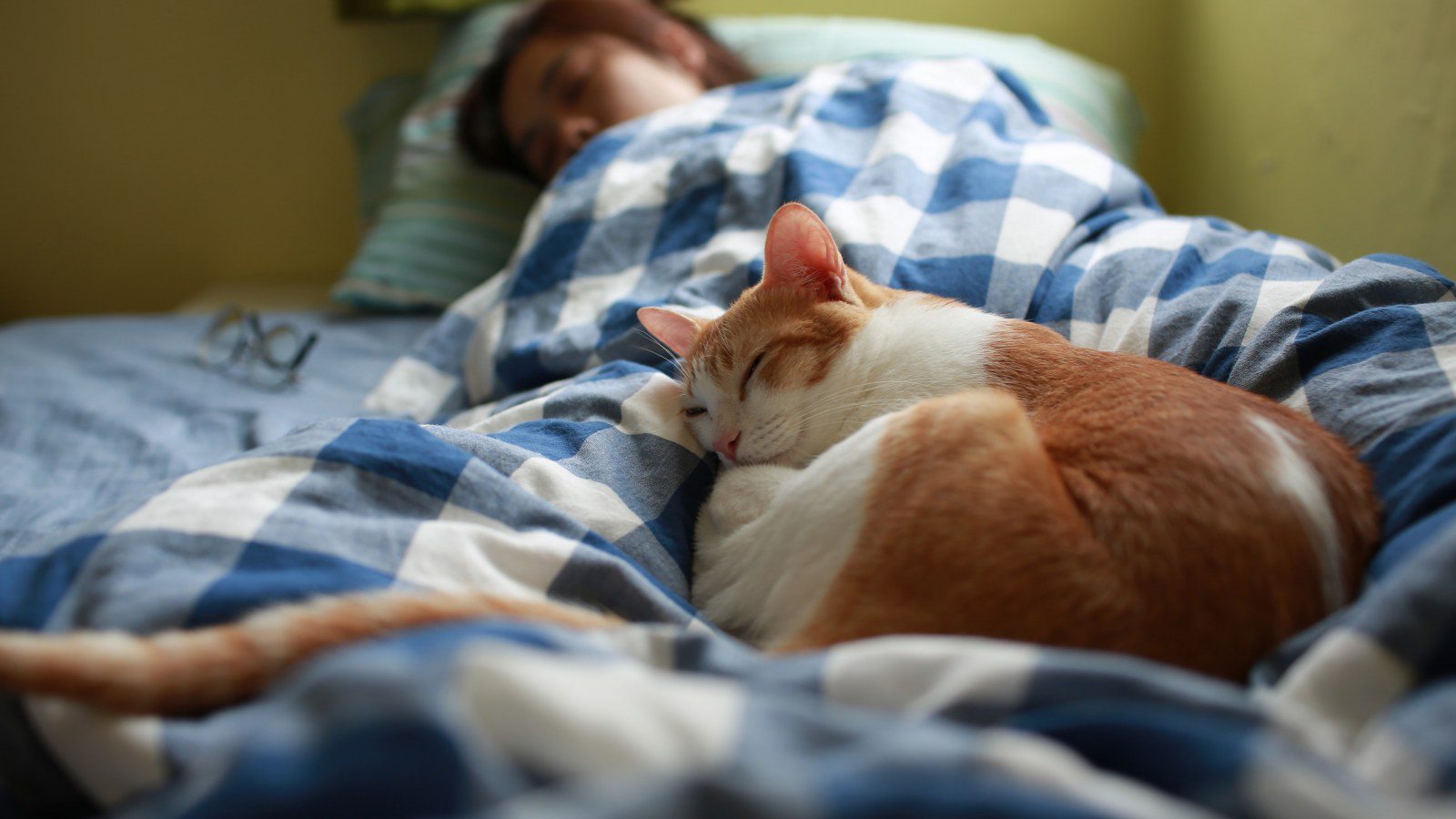Do you ever wonder why your furry feline friend curls up for a cozy snooze in their litter box? It may seem peculiar, but understanding this little quirk can actually provide valuable insights into your cat's behavior and well-being. By exploring the reasons behind this seemingly odd behavior, you'll not only gain a deeper appreciation for your kitty's unique habits but also be better equipped to ensure their comfort and happiness. So, let's dive into the intriguing world of why cats choose to take their cat naps in the box!
Key Takeaways:
- Some cats may choose to sleep in their litter box due to stress or anxiety.
- A dirty litter box can cause discomfort and lead to a cat sleeping in it.
- Cats may seek the litter box as a safe and enclosed space for uninterrupted sleep.
- Providing a comfortable and separate sleeping area for your cat can discourage them from using the litter box for sleep.
- If your cat consistently sleeps in the litter box, it is important to address any underlying issues and ensure their overall well-being.
What is "Cat Nap in the Box"? Explained in Simple Terms
In simple terms, "Cat Nap in the Box" refers to cats choosing to sleep in their litter box instead of a cozy bed. Cats are known for their independent and sometimes quirky behavior, and this is just one example of their unique preferences. Instead of curling up on a soft blanket or cushion, some cats find comfort and security in sleeping inside their litter box.
Why do Some Cats Sleep in Their Litter Box Instead of a Cozy Bed?
Cats have different reasons for choosing to sleep in their litter box instead of a more comfortable spot. One possible reason is that they feel safe and protected inside the confined space of the litter box. It may remind them of a den or hiding place where they can relax without feeling exposed.
Another reason could be that the litter box provides a familiar scent that brings them comfort. Cats have a strong sense of smell, and the scent of their own waste may be soothing to them. Additionally, some cats may simply prefer the texture and temperature of the litter over other bedding options.
Possible Reasons Why Cats Prefer Sleeping in a Litter Box:
- Feeling safe and protected in an enclosed space
- Familiar scent provides comfort
- Preference for the texture and temperature of litter
How Does Sleeping in a Litter Box Affect a Cat's Health and Hygiene?
Sleeping in a litter box can have negative effects on a cat's health and hygiene. The litter box contains waste materials, bacteria, and potential contaminants that can be harmful if ingested or come into contact with sensitive areas like eyes or noses. This can increase the risk of infections and respiratory issues for the cat.
In addition, sleeping in a litter box can lead to poor hygiene. Cats may become dirty or soiled with litter particles, which can cause discomfort and skin irritation. It can also contribute to the spread of litter throughout the house, creating a mess and potentially exposing humans to bacteria or parasites present in the litter.
Potential Risks and Dangers Associated with Cats Sleeping in Their Litter Box:
- Increased risk of infections and respiratory issues
- Poor hygiene and discomfort for the cat
- Potential spread of litter and exposure to bacteria or parasites
Signs Your Cat May Be Stressed or Uncomfortable, Leading Them to Sleep in Their Litter Box
If your cat is consistently choosing to sleep in their litter box instead of a more comfortable spot, it may be a sign that they are stressed or uncomfortable. Cats may resort to this behavior as a way to cope with anxiety or a lack of suitable alternatives.
Some signs that indicate your cat may be stressed or uncomfortable include excessive grooming, hiding more often than usual, changes in appetite, vocalization (such as meowing excessively), aggression towards other pets or people, or avoiding interaction. If you notice any of these signs along with the preference for sleeping in the litter box, it's important to address the underlying issue and provide your cat with a more suitable sleeping environment.

Signs Your Cat May Be Stressed or Uncomfortable:
- Excessive grooming
- Hiding more often than usual
- Changes in appetite
- Vocalization (excessive meowing)
- Aggression towards other pets or people
- Avoiding interaction
Tips and Strategies to Encourage Cats to Sleep Elsewhere Besides Their Litter Box
If you want to encourage your cat to sleep in a more appropriate and comfortable place, there are several strategies you can try. Firstly, provide your cat with cozy bedding options such as soft blankets or cat beds. Place these in quiet and secluded areas of the house where your cat feels safe.
You can also try using pheromone sprays or diffusers designed specifically for cats to create a calming environment. These products release synthetic versions of natural feline pheromones, which can help reduce stress and anxiety in cats.
Another helpful strategy is to provide your cat with plenty of mental and physical stimulation during the day. Engage them in play sessions, offer interactive toys, and create an enriching environment with scratching posts, climbing trees, and hiding spots. This can help tire them out and make them more likely to seek out comfortable sleeping areas instead of the litter box.
Tips and Strategies to Encourage Cats to Sleep Elsewhere:
- Provide cozy bedding options in quiet areas
- Use pheromone sprays or diffusers for a calming effect
- Offer plenty of mental and physical stimulation during the day
Why Do Some Cats Sleep in Their Litter Box Instead of a Cozy Bed?
The Comfort Conundrum
One possible reason why some cats choose to sleep in their litter box instead of a cozy bed is due to a comfort conundrum. Cats have unique preferences when it comes to their sleeping spots, and what may seem uncomfortable to us humans might be the perfect snooze spot for them. The texture and smell of the litter may provide a sense of security and familiarity that helps them relax and feel at ease.
Temperature Regulation
Cats are known for being temperature-sensitive creatures, and sometimes they may find their litter box more appealing because it offers better temperature regulation. Litter boxes are often placed in quiet corners or secluded areas, which can provide a cooler or warmer environment depending on the surrounding conditions. This can be especially true if the cat's regular sleeping area lacks proper insulation or ventilation.
Reasons Why Cats Prefer Sleeping in a Litter Box
Scent Marking
Cats have scent glands located on various parts of their bodies, including their paws. By sleeping in their litter box, cats leave behind their scent as a way to mark territory and establish ownership. This behavior is instinctual and can help them feel more secure in their surroundings.
Privacy and Security
Litter boxes often provide cats with a sense of privacy and security that other sleeping areas may not offer. In the wild, cats seek out hidden spots for resting to avoid potential predators or threats. By curling up in their litter box, cats can create a cozy den-like space where they feel protected from any perceived dangers.
How Does Sleeping in a Litter Box Affect a Cat's Health and Hygiene?
Increased Risk of Infections
Sleeping in a litter box can expose cats to a higher risk of developing urinary tract infections or other bacterial infections. The litter box contains feces and urine, which can harbor harmful bacteria that may come into contact with the cat's fur or paws while they sleep. This can lead to skin irritations, urinary issues, and overall compromised health.
Poor Hygiene and Odor
When cats sleep in their litter box, they are more likely to have dirty fur and paws covered in litter particles. This can result in poor hygiene and an unpleasant odor. Additionally, if the litter box is not cleaned regularly, it can become a breeding ground for bacteria and parasites, further compromising the cat's health.
Risks and Dangers Associated with Cats Sleeping in Their Litter Box
Ingestion of Litter
If a cat sleeps directly on the litter or near the entrance of the litter box, there is a risk of ingesting small particles of litter. This can lead to gastrointestinal issues such as blockages or irritation in the digestive tract.
Exposure to Harmful Chemicals
Litter boxes often contain clumping or non-clumping litters that may contain chemicals such as silica dust or fragrances. When cats sleep in their litter box, they are exposed to these chemicals for extended periods, which can be harmful to their respiratory system and overall well-being.
Signs Your Cat May Be Stressed or Uncomfortable, Leading Them to Sleep in Their Litter Box
- Frequent scratching around the litter box area
- Avoidance of other sleeping areas
- Excessive grooming or overgrooming
- Changes in appetite or litter box habits
- Aggressive behavior towards other pets or humans
Tips and Strategies to Encourage Cats to Sleep Elsewhere Besides Their Litter Box
Create Cozy Sleeping Areas
Provide your cat with comfortable and inviting sleeping spots throughout your home. Use soft blankets, cat beds, or even cardboard boxes lined with cozy materials. Experiment with different textures and locations to find what your cat prefers.
Keep the Litter Box Clean
Maintain a clean litter box by scooping it daily and doing a complete litter change regularly. Cats are more likely to avoid sleeping in their litter box if it is kept clean and odor-free.
Offer Alternative Hiding Places
Cats often seek out hidden spots for resting. Create alternative hiding places such as covered cat condos, shelves, or tunnels where your cat can feel safe and secure.
Spend Quality Time Together
Cats may resort to sleeping in their litter box due to stress or anxiety. Spend quality time with your cat through play sessions, gentle petting, and interactive toys to help alleviate any underlying emotional issues that may be causing them discomfort.
In conclusion, cats may sleep in their litter boxes due to a sense of security and familiarity. However, it is important to provide them with comfortable sleeping areas to ensure their well-being and hygiene.
Why is my cat sleeping in his litter box?
Sickness: If a cat is found lying or sleeping in their litter box, it could be a sign of illness. They may be looking for a calm and secure space or may not have the energy to get out of the box. If you think your cat is unwell or has been injured, it is important to contact your veterinarian right away.
Why is my cat laying in the litter box after being spayed?
If you notice any unusual changes in your cat's behavior after surgery, it is important to be vigilant. Cats may hide in their litter box after surgery due to pain and discomfort, which are the primary reasons for concern.
How do you destress a cat?
Providing food puzzles for mental stimulation, vertical space for climbing and observing, scratching posts, safe outdoor access such as a catio, window perches, and interactive play are all ways to engage cats and promote stress relief. Play is crucial for cats as it allows them to release positive hormones and feel good.
Do cats like when you clean their litter box?
According to a recent statement, cats prefer clean litter boxes that have recently been scooped and do not have a strong smell. Additionally, some cats may feel more secure and connected to their favorite individuals, prompting them to use the litter box when those individuals are nearby.
How often do you change cat litter?
The general recommendation for replacing clay litter is twice a week, but depending on your specific situation, you might need to replace it more frequently, such as every other day or once a week. If you clean the litter box on a daily basis, you may only need to change the clumping litter every two to three weeks.
Do female cats need special litter after spaying?
6. When using cat litter, make sure to use a type that is completely free of dust, such as shredded newspaper, raw long grain white rice, or the brand Yesterday's News. Keep the litter box clean for a period of 14 days.
7. To prevent unwanted pregnancies, it is important to separate neutered males from unspayed females for a duration of 4-6 weeks, as neutered males can still impregnate an unspayed female.

















